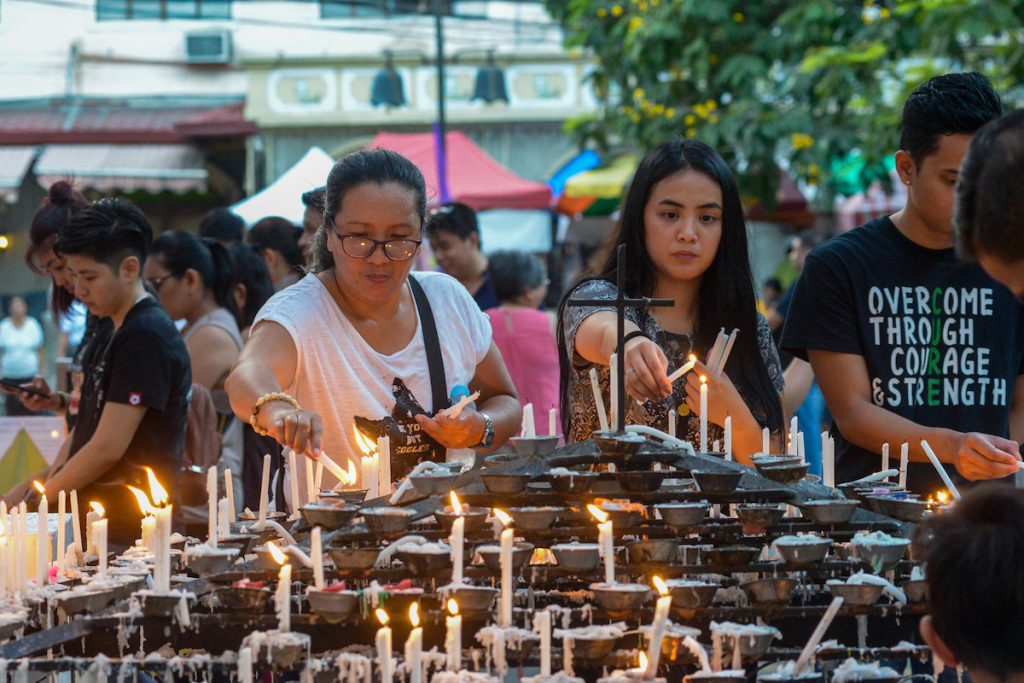
The central theme of the synodal process points to communion—koinonia, a key element of ecumenism.
The Roman Catholic faith communities must also see the ecumenical relevance of the synodal process, while it is important to deal first with the internal aspects of “communion,” the all-embracing “koinonia” spirit must not be forgotten.
Vatican II, as the seedbed of this synodal journey, since then, emphasized “in Christ the church is, as it were, the sacrament, that is, the sign and instrument for the most intimate union with God and for the unity of all humanity.” (LG 1)
The Preparatory Document of the Synod states: “a synodal Church is a Church ‘going forth,’ a missionary Church ‘whose doors are open’ (EG, no. 46). This includes the call to deepen relationships with other Churches and Christian communities, with which we are united by the one Baptism […]”
As the local churches (or archdiocesan/diocesan phase of the synodal journey) are already starting the synodal process, they should not put the “ecumenical element” on the sidelines nor in the “footnotes” of the documents.
Pope Francis warned of formalism to embrace synodality, and suggested “the concreteness of synodality” — a real involvement of church communities. We should not wait for the synod to finish and do formalities with existing guides and documents.
Better start to open our churches, in Germany, some Catholic and Protestant churches facilitate common prayers with different religious denominations (and even with Islam and Jewish prayers).
Common gains in the pursuit of unity
In the global stage, the pursuit of ecumenical dialogue is being undertaken by the main (organizational) Christian churches, namely, the Roman Catholic Church and the World Council of Churches (WCC) in the year 2022.
The WCC community is preparing for its 11th Assembly in September 2022 in Karlsruhe, Germany, on the theme “Christ’s love moves the world to reconciliation and unity.”
During the October 12, 2021 virtual meeting of The Executive Committee of the Joint Working Group (JWG) between the Roman Catholic Church and the World Council of Churches (WCC), the discussion centered on the ecological involvement of churches and also recent recommendations to the churches on the documents: “Peacebuilding in Situations of Conflict” and “Migrants and Refugees – Ecumenical Challenges and Opportunities.”
In Taiwan, Catholic and Buddhist communities gathered last November 13, 2021, for The Way of Livin’ in Love at ZhenFuShan, Kaoshiung for an inter-religious 34-km pilgrimage and thanksgiving liturgy for the COVID response in the country.
Both the inter-religious groups are helping each other in programs related to disaster response, ecological actions and unity prayer.
“We unite in common prayer from our diverse traditions, unity is never impossible,” said Father Joel Dequilla, a Filipino missionary in Taiwan who participated in the gathering.
In the local stage, the Iglesia Filipina Independiente (IFI) and the Roman Catholic Church in the Philippines affirmed in a signed statement that as “both the IFI and the RCC thus express their readiness for more ecumenical cooperation amidst diversity. As church leaders, we ask and pray for mutual forgiveness for any injuries inflicted in the past. We shall strive for the healing and purification of memories among our members.”
In this meeting, a companion statement called for “mutual recognition of baptisms” between the IFI and the Catholic Church even as the Trinitarian baptismal formula of the IFI has already been recognized by the Catholic Church in its list of validly administered baptisms, forging a more positive reconciliation of both churches.
Last October 9, 2021, faith leaders in Negros Oriental gathered for an ecumenical prayer and protest “Hiniusang Ampo alang sa Kinaiyahan (Joint Prayer for the Environment): an Ecumenical Sunrise Service for Creation,” organized to express the collective concern of Christian churches and communities against the proposed 174-hectare reclamation off the coast of Dumaguete City.
Future together
There are common areas where dialogue can be fruitfully enhanced, as there are no limits in ecumenical dialogue; as long as identity, tradition and historicity are respected for the sake of unity.
The plurality of churches serves the plurality of cultures in the society, all are important in the dynamism of the uniqueness of the Christian faiths; and we are all reminded that what is important is Church uniting, not Church dividing.
“A synodal Church is a prophetic sign, above all for a community of nations incapable of proposing a shared project, through which to pursue the good of all: practicing synodality is today for the Church the most evident way to be ‘the universal sacrament of salvation’ (LG, no. 48), ‘a sign and instrument of intimate union with God and of the unity of the whole human race’ (LG, no. 1).” (Preparatory Document §15) Pope Francis asked for a ‘different Church’, “a Church open to the newness that God wants to suggest […]”
St. Augustine affirms: “This body of Christ, this one church of Christ, this unity that we are—this is what cries from the ends of the earth” (en. Ps., 60, 3).
Bro. Jaazeal Jakosalem, OAR is a Filipino Laudato Si’ reader. A member of Pusyon Kinaiyahan, an environmental group in the Visayas. Currently based in Germany as a member of PCPR-Europe, working for the Philippine campaigns related to the protection of human rights.
Source: Licas Philippines
0 Comments